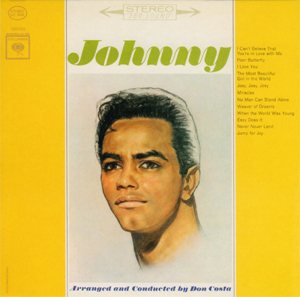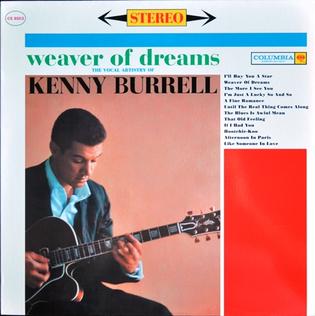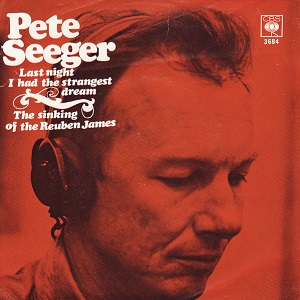See also
- A Weaver of Dreams, a lost 1918 silent film
Weaver of Dreams may refer to:
The Power of Love or Power of Love may refer to:
Gordon Hill Jenkins was an American arranger, composer, and pianist who was influential in popular music in the 1940s and 1950s. Jenkins worked with The Andrews Sisters, Johnny Cash, The Weavers, Frank Sinatra, Louis Armstrong, Judy Garland, Nat King Cole, Billie Holiday, Harry Nilsson, Peggy Lee and Ella Fitzgerald.
Weaver or Weavers may refer to:

Spooky Tooth were an English rock band originally formed in Carlisle in 1967. Principally active between 1967 and 1974, the band re-formed several times in later years.
Jason Michael Weaver is an American actor and singer best known for his roles as Marcus Henderson on The WB sitcom Smart Guy, Jerome Turrell on the short-lived sitcom Thea from 1993 to 1994, and the pre-teenaged Michael Jackson on the 1992 miniseries The Jacksons: An American Dream., which originally both aired on ABC. He was also the singing voice of the young Simba in Walt Disney Feature Animation's 1994 film The Lion King. He was featured on Chingy's 2004 hit single "One Call Away", which peaked at number 2 on the Billboard Hot 100. He played Teddy in the 2006 hit movie ATL.

Gary Malcolm Wright was an American musician and composer best known for his 1976 hit songs "Dream Weaver" and "Love Is Alive". Wright's breakthrough album, The Dream Weaver (1975), came after he had spent seven years in London as, alternately, a member of the British blues rock band Spooky Tooth and a solo artist on A&M Records. While in England, he played keyboards on former Beatle George Harrison's triple album All Things Must Pass (1970), so beginning a friendship that inspired the Indian religious themes and spirituality inherent in Wright's subsequent songwriting. His work from the late 1980s onwards embraced world music and the new age genre, although none of his post-1976 releases matched the same level of popularity as The Dream Weaver.

The Jacksons: An American Dream is an American five-hour miniseries broadcast in two halves on ABC and originally broadcast on November 15 through November 18, 1992. It is based upon the history of the Jackson family, one of the most successful musical families in show business, and the early and successful years of the popular Motown group the Jackson 5.

"Dream Weaver" is a song by the American singer Gary Wright, released as the first single from his third studio album The Dream Weaver in December 1975.
Adobe Dreamweaver is a web development tool developed by Adobe Systems.

Aretha In Paris is a live album by American singer Aretha Franklin, released in 1968, by Atlantic Records. The album was recorded in Paris on May 7, 1968. It reached the top 20 of Billboard's album chart. It was reissued on compact disc through Rhino Records in the 1990s.

"Who Really Cares (Featuring the Sound of Insanity)" is a song by Powderfinger from their sixth album Dream Days at the Hotel Existence. It is the fourth single and final single from the album and was released in Australia in March 2008. The band's publicist, Ms. Fanclub, announced on 27 February that the single would be released to radioplay in the following week, without specifying a date. In her announcement, she also noted that a music video will be released at about the same time. The music video was then released in mid-March; however, the single's release was then announced as 31 March.
Dreaming of You may refer to:

Jane Louise Weaver is an English singer, songwriter, and guitarist. She runs the label Bird Records, an offshoot of Twisted Nerve Records. Weaver has performed as part of the Britpop group Kill Laura, the folktronica project Misty Dixon, and as a solo artist. She was brought up in the town of Widnes, Cheshire.

Dream Weaver is the third album by jazz saxophonist Charles Lloyd, his first released on the Atlantic label, and the first recordings by the Charles Lloyd Quartet featuring Keith Jarrett, Cecil McBee and Jack DeJohnette. The Allmusic review by Thom Jurek awarded the album 4½ stars and states "Dream Weaver is a fully realized project by a band — a real band — in which each member has a unique part of the whole to contribute... There were no records like this one by new groups in 1966".

"Make Up Bag" is the second single by American R&B artist The-Dream from his third studio album Love King. The song was officially released as a single on June 8, 2010, to the iTunes Store. It features rapper T.I.

"Love Is Alive" is a song by Gary Wright taken from the 1975 album The Dream Weaver. It features Wright on vocals and keyboards and Andy Newmark on drums, with all music except for the drums produced on the keyboards. The album's title cut and "Love Is Alive" both peaked at No. 2 on the Billboard Hot 100 singles chart. "Love Is Alive" spent 27 weeks on the chart, seven weeks longer than "Dream Weaver". Billboard ranked "Love Is Alive" as the No. 9 song of 1976.

Johnny is an album by American pop singer Johnny Mathis that was released on July 15, 1963, by Columbia Records and later described on Allmusic as "a nice blend of standards, show tunes and then-new compositions."

Weaver of Dreams is an album by guitarist Kenny Burrell recorded in 1960 and 1961 and originally released on the Columbia label. The album features Burrell's vocal talents as well as his guitar playing.

Footprint is the second solo album by American musician Gary Wright, released in 1971 on A&M Records. It contains "Stand for Our Rights", an anthem-like song calling for social unity that was issued as a single in advance of the album. Wright recorded the majority of Footprint in London with a large cast of musicians – including George Harrison, Hugh McCracken, Alan White, Klaus Voormann, Jim Gordon, Jim Keltner and Bobby Keys – many of whom, like Wright, had played on Harrison's All Things Must Pass triple album in 1970. Harrison's contributions included an uncredited role as producer, and serve as an example of his support for Wright during the early stages of Harrison's solo career. The ballad "Love to Survive" is one of three tracks that feature an orchestral arrangement by John Barham.

"Last Night I Had the Strangest Dream" is a song written by American folk singer-songwriter Ed McCurdy in 1950. Due to McCurdy's connection with fellow musicians, it was common in repertoires within the folk music community. The song had its first album release when Pete Seeger recorded it as "Strangest Dream" for his 1956 album Love Songs For Friends & Foes. Seeger would later re-visit the song for his 1967 album Waist Deep in the Big Muddy and other Love Songs. The strong anti-war theme of the song led it to be recorded by multiple other artists, including The Weavers (1960), Joan Baez (1962), The Kingston Trio (1963), Simon & Garfunkel (1964), and Johnny Cash who released two versions of the song during the 2000s.